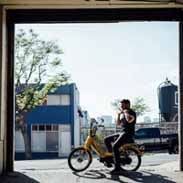Sociology Test #2 Chapter 7 – Flashcards
Unlock all answers in this set
Unlock answersquestion
stratification
answer
systematic inequalities between groups of people that arise as intended or unintended consequences of social processes and relationships
question
Jean jacques Rousseau
answer
private property creates social inequality and that this inequality ultimately leads to social conflict
question
Ferguson and Miller (3)
answer
-agreed with JJR -inequality is good because it helps some people get ahead -if everyone was equal, why even try
question
Thomas Malthus (2)
answer
-viewed inequality favorably but only to control population growth -more equal distribution of resources would increase the worlds population to unsustainable levels and ultimately bring about mass starvation and conflict
question
George Wilhelm Friedrich Hegel's master slave dialect
answer
-most social relationships were based on master slave model -over time society would have more and more free people
question
standards of equality (4)
answer
-ontological equality -equality of opportunity -equality of condition -equality of outcome
question
ontological equality
answer
the notion that everyone is created equal in the eyes of God
question
equality of opportunity
answer
inequality is acceptable so long as everyone has the same opportunities for advancement and is judged by the same standards
question
equality of condition
answer
idea that everyone should have an equal starting point from which to pursue the goal
question
equality of outcome
answer
everyone in society should end up with the same "rewards" regardless of starting point, opportunities or contributions
question
the estate system (2)
answer
-a politically bases system of stratification -characterized by limited social mobility
question
the caste system (2)
answer
-a system of stratification based on hereditary notions of religion and theological purity -generally offered no prospect for social mobility
question
the class system (3)
answer
-an economically bases system of stratification -loose social mobility -based on roles in the production process rather than individual characteristics
question
bourgeois society
answer
a society of commerce in which the maximization of profit is the primary business incentive example: capitalists
question
proletariat
answer
working class
question
Erik Olin Wright
answer
developed the concept of contradicting class locations which is the idea that people can occupy locations in the class structure that fall between the two "pure" classes defined by Karl Marx
question
Max Weber's concept of class
answer
grouping people according to the value of their property or labor in the commercial marketplace
question
status hierarchy system
answer
based on social prestige (how we look at certain groups of people)
question
top group
answer
doctors, lawyers, architects, and intellectual thinkers
question
elite mass dichotomy system
answer
has a governing elite, a few leaders who broadly hold the power of society
question
social mobility (2)
answer
-movement between equal jobs -horizontal or vertical
question
structural mobility
answer
mobility that is inevitable from changes in economy example: high tech jobs in 20 years
question
the estate system
answer
Karl Marx and JJR agreed that the primary source of social ills in society was due to the emergence of
question
dependency
answer
according to german philosopher Hegel, the master-slave relationship is one of mutual...
question
estate system
answer
the social stratification system that was favored in feudal europe and the american south before the civil war
question
horizontal mobility
answer
a group or an individual transitioning from one social status to another that is situated more or less on the same rung (level) of the ladder
question
dialect
answer
a two directional relationship, one that goes both ways example: a conversation
question
free rider problem
answer
the notion that when more than one person is responsible for getting something done, the incentive is for each individual to shirk responsibility and hope others will pull the extra weight
question
contradicting class locations
answer
the idea that people can occupy locations in the class structure that fall between the two "pure" classes
question
meritocracy
answer
a society where status and mobility are based on individual attributes, ability and achievement
question
socioeconomic status (SES)
answer
an individuals position in a stratified social order
question
exchange mobility
answer
mobility in which if we hold fixed the changing distribution of jobs, individuals trade jobs not one to one but in a way that ultimately balances out
question
status attainment model
answer
approach that ranks individuals by socioeconomic status including income and educational attainment and seeks to specify the attributes characteristic of people who end up in more desirable occupations



